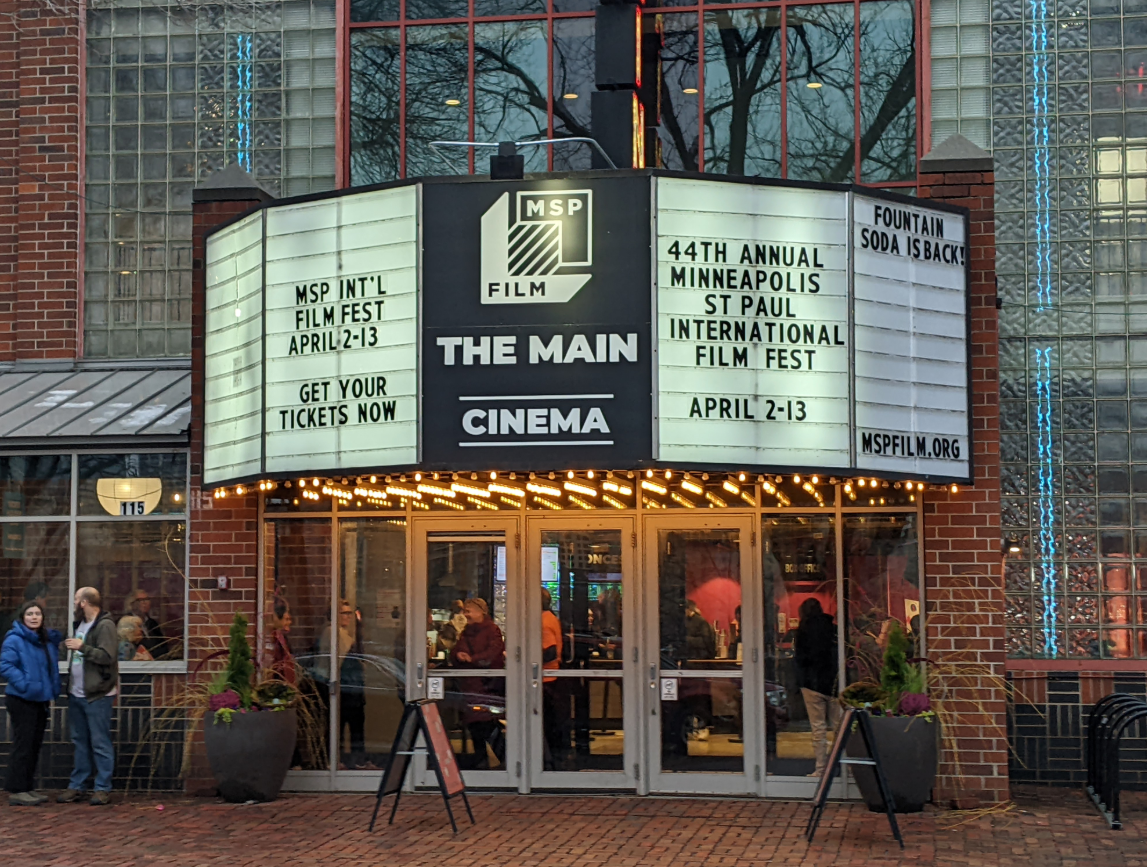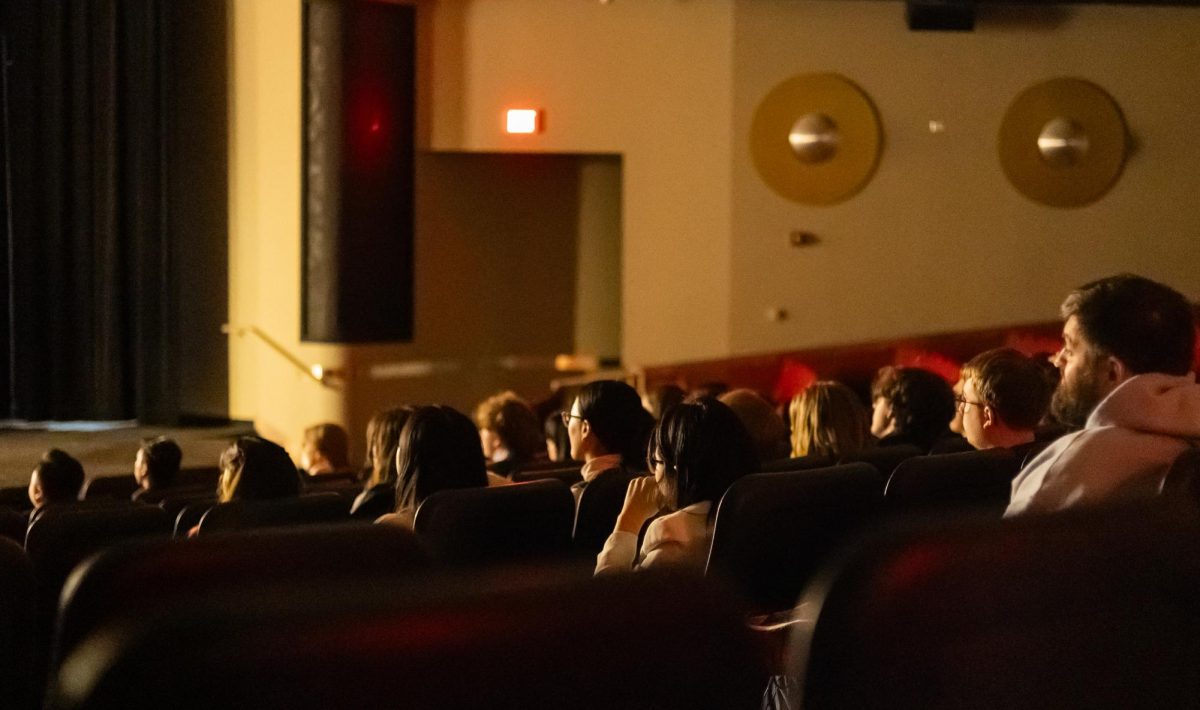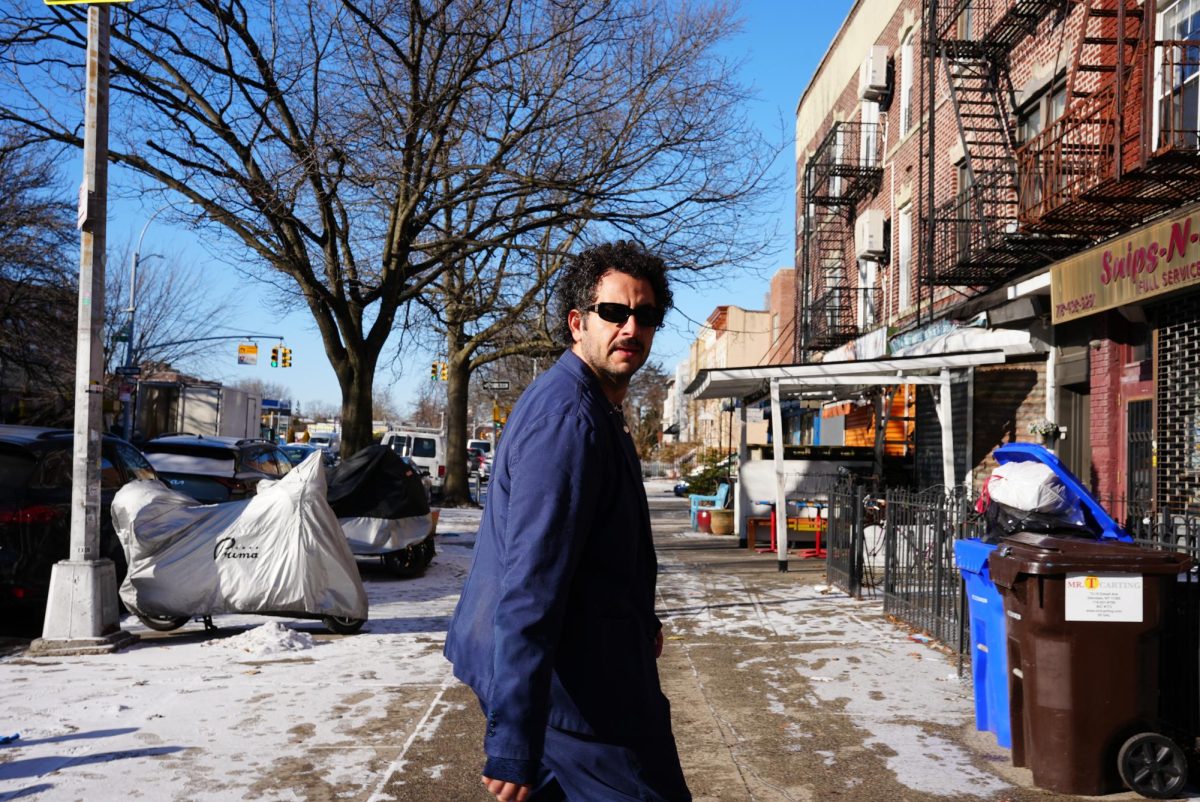When Liz Howls was a child in Iowa, her father brought home a refrigerator box and cut a hole in it. Just like that, the young Howls had her first puppet theater. She loved putting on productions for her parents in their living room, using the cloth puppets her mother already had from her job as a children’s librarian.
In fifth grade, Howls saw a puppet show and talked to the puppeteers afterwards.
“I introduced myself as a puppeteer, because I was doing shows in my living room,” Howls said, laughing.
Smitten by Howls’ gusto, they invited her to the annual children’s puppetry festival hosted by Eulenspiegel Puppet Theatre Company at the Iowa City Public Library. There, children were encouraged to perform their own work.
“I made my refrigerator box a lot fancier. And I had this big question, ‘If you dug a hole all the way to China, would you come out head-first or feet-first?’” Howls said.
Compared to the other productions – most of which were put on by entire classrooms – Howls’ show with her neighborhood friend went above and beyond expectations.
At the University of Minnesota, Howls majored in art. She was also involved in the theater department, where she met professor and longtime mentor Michael Sommers.
Minneapolis provided Howls with the perfect setting to flourish as a puppeteer and performer. Here, there are more independent puppetry companies than most cities can claim.
Straight out of college and high off an apprenticeship at Bread and Puppet Theater, a more than 50-year-old company located on a farm in Vermont, Howls was ready to create. With her friend, she came up with a novel idea: creating a puppet show every full moon.
The “Full Moon Puppet Show” was a smash hit, especially among young adults. Its viewers could purchase beer and enjoy live music.
For a while, the show was based at Bedlam Theatre. When that space became unavailable, “Full Moon” packed up and moved into backyards, empty warehouses and gardens. One time, the troupe even made a stage out of snow.
For three years, Howls and her quirky friend group put on one “Full Moon” show per month. During this time, Howls’ also found a home at Open Eye Figure Theatre. Run by her former professor, Sommers, and his partner Susan Haas, the theater is known for its unconventional, community-oriented style.
“I feel the notion of legacy. Liz has taken what she can from us and learned what she can, but she’s taking it and making her own,” Sommers said.
Howls has worked with a variety of puppet types, from miniature marionettes to the 10-foot-tall legs of Alice from “Alice in Wonderland.”
She is also well-versed in the art of shadow puppetry. For her piece “Music Box,” Howls hand-cut hundreds of pieces of paper and used a “cranky” – a 40-foot-long scroll of paper moved by a hand lever.
Dialogue-less, the show follows the life of a man with a crow’s head. He walks through different environments, seeking answers. Howls sees herself as a character in this piece too, even if she’s behind the scenes.
“Watching her create shadow puppetry is amazing. … It takes hours to make several cut-outs that are only part of a show for about 30 seconds,” said Stacy Schultz, a friend of Howls and a former stage manager at Open Eye.
More recently, Howls has been a mentor to adult beginner puppeteers in the “New Puppetworks” program at Monkeybear’s Harmolodic Workshop, a nonprofit that nurtures Native American and people of color in puppetry. She is an expert at helping people find their vision and then put it into practice.
“One of the participants in last year’s New Puppetworks program … it had been months and he hadn’t started [making his puppet show].” said Chamindika Wanduragala, artistic director of Monkeybear. “[Howls] met with him frequently up until production time, and that’s what got him to push through. Her guidance in that process was exactly what he needed.”
Howls’ colleague Schultz has known her for nine years, from Howls’ days working on Full Moon, to her six years at Open Eye and now as a mentor and independent, multidisciplinary creative.
“I’ve really seen Liz grow in a lot of ways as an artist. She’s had good mentors in her day and she knows exactly what it means to be a good mentor,” Schultz said. “She has that drive to help other people succeed.”










